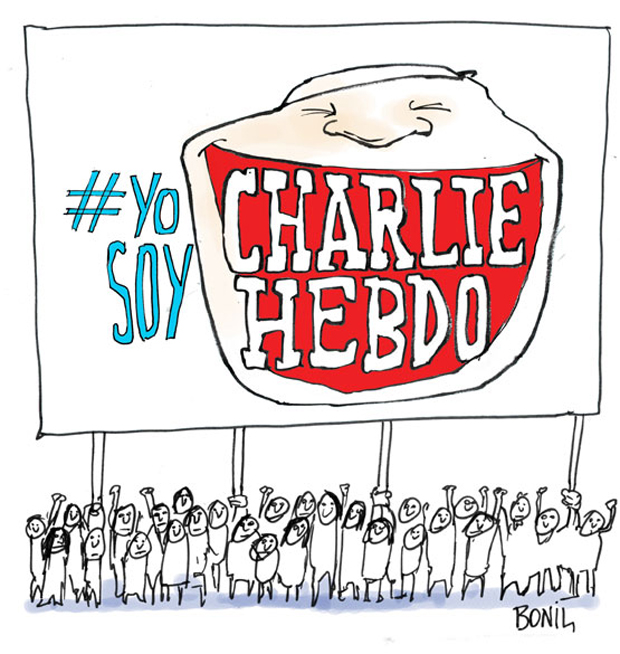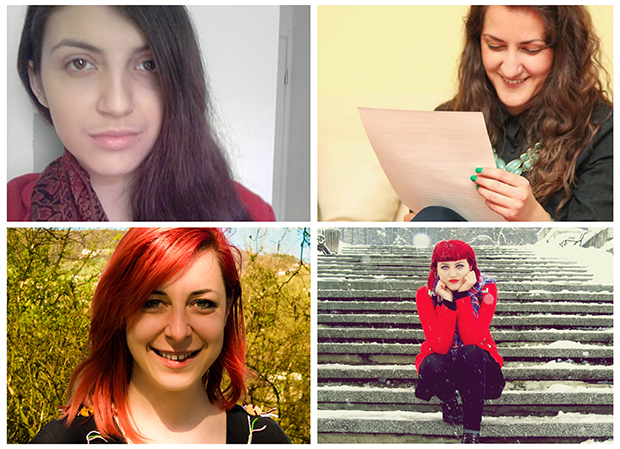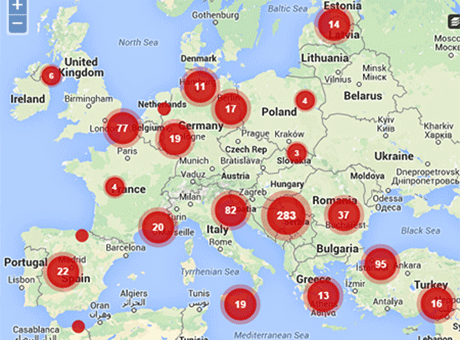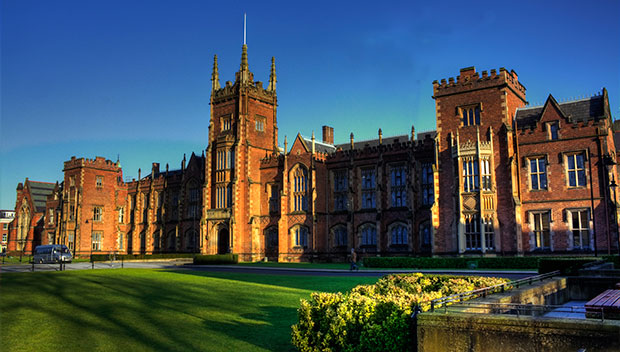27 Apr 2015 | Campaigns, France, mobile, News, Statements, United Kingdom, United States

The decision by six authors to withdraw from a PEN American Center gala in which Charlie Hebdo will be honoured with an award once again emphasises the dangerous notion that some forms of free expression are more worthy than others of defending.
Charlie Hebdo was offensive to many — but as PEN points out — it was also vigorous in its defence of the importance of free speech, even in the face of those who would seek to silence that view through violence.
“Free speech for all can only be protected by standing up as vigorously – if not more vigorously – for the views you disagree with as those with which you agree,” said Index CEO Jodie Ginsberg. “If we don’t do that, freedom becomes something only for the favoured and powerful.”
Below Index republishes an article from CEO Jodie Ginsberg written a week after the attacks on Charlie Hebdo that addresses the importance of a defence of free speech in all its forms.
If you said “I believe in free expression, but…” at any point in the past week, then this is for you. If you declared yourself to be “Charlie”, but have ever called for an offensive image to be removed from public viewing, then this is for you. If you “liked” a post this week affirming the importance of free speech, but have ever signed a petition calling for a speaker to be banned, then this is for you.
Because the rush to affirm our belief in free expression in the wake of Charlie Hebdo attacks ignores a simple truth: that free speech is being eroded on all sides, and all sides are responsible. And it needs to stop.
Genuine free expression means being able to articulate thoughts, feelings and ideas without fear of harm. It is vital because without it individuals would be subject to the whim of whichever authority dictated what ideas and opinions – as opposed to actions – are acceptable. And that is always subjective. You need only look at the world leaders at Sunday’s Paris solidarity march to understand that. Attendees included Ali Bongo, President of Gabon, where the government restricts any journalism critical of the authorities; Turkish Prime Minister Ahmet Davutoglu, whose country imprisons more journalists in the world than any other; and the UK’s David Cameron, who declared his support for free expression and the right to offend, while his government considers laws that could drive debate about extremism underground.
It is precisely the freedom for others to say what you may find offensive that protects your own right to express your views: to declare, say, your belief in a God whom others deny exists; or to support a political system that others dismiss. It is what enables scientific and academic thought to progess. As soon as we put qualifications around “acceptable” free expression, we erode its value. Yet that is precisely what happened time and again in response to the Charlie Hebdo attacks, with individuals simultaneously declaring their support for free expression while seeming to suggest that the cartoonists and anyone else who deliberately courts offence should choose other ways to express themselves – suggesting that the responsibility for “better” speech always lies with the person deemed to be causing offence rather than the offended.
“The free communication of ideas and opinions is one of the most precious of the rights of man. Every citizen may, accordingly, speak, write and print with freedom…”
French National Assembly, Declaration of the Rights of Man, August 26, 1789
Index believes that the best way to tackle speech with which you disagree, including the offensive, and the hateful, is through more speech, not less. It is not through laws and petitions that restrict the rights of others to speak. Yet, increasingly, we use our own free speech to call for that of others to be limited: for a misogynist UK comedian to be banned from our screens, or for a UK TV personality to be prosecuted by police for tweeting offensive jokes about ebola, or for a former secretary of state to be prevented from giving an address.
A project mapping media freedom in Europe, launched by Index just over six months ago, shows how journalists are increasingly targeted in this region, including – prior to last week’s incidents – 61 violent attacks against the media. Globally, the space for free expression is shrinking. We need to reverse this trend.
If you genuinely believe in the value of free speech – that all ideas and opinions must be heard – then that necessarily extends to the offensive and the vile. You don’t have to agree with someone, or condone what they are saying, or the manner in which it is said, but you do need to allow them to say it. The American Civil Liberties Union got this right in 1978 when they defended the rights of a pro-Nazi group to march in Chicago, arguing that rights to free expression needed apply to all if they were to apply to any. (As did charity EXIT-Germany late last year, when it raised money for an anti-fascism cause by donating money for every metre walked during a neo-Nazi march).
Countering offensive speech is – of course – only possible if you have the means to do so. Many have observed, rightly, that marginalisation and exclusion from mainstream media denies many people the voice that we would so vociferously defend for a free press. That is a valid argument. But this should be addressed – and must be addressed – by tackling this lack of access, not by shutting down the speech of those deemed to wield power and privilege.
Voltaire has been quoted endlessly in support of free expression, and the right to agree to disagree, but British author Neil Gaiman, who discusses satire and offence in the winter Index magazine, also had it right. “If you accept — and I do — that freedom of speech is important,” he once wrote, “then you are going to have to defend the indefensible. That means you are going to be defending the right of people to read, or to write, or to say, what you don’t say or like or want said…. Because if you don’t stand up for the stuff you don’t like, when they come for the stuff you do like, you’ve already lost.”
This article was originally posted on 12 January 2015 and reposted on 27 April 2015 at indexoncensorship.org
27 Apr 2015 | Bosnia, mobile, News

Sara, Nataša, Elma and Lejla (clockwise, from top left) are local correspondents for Balkan Diskurs.
At first glance it’s easy to mistake Bosnia and Herzegovina’s media landscape as one of promise. With a constitution that guarantees freedom of the press, a large number of media outlets, and a financially independent regulatory body, the small Balkan country performs relatively well by Southeast European standards.
But on closer inspection such freedoms are a mere façade, hiding this divided, post-war state’s continued struggle with a highly polarised and politicised media. Despite appearances, many of the fundamental aspects of media freedom face significant challenges and, according to recent reports, the situation is only worsening.
Lejla, Nataša, Sara and Elma live their lives within this decline. All in their early to mid-twenties, they represent a generation that had little to do with the war but that bears the burdens of its legacy nonetheless. All four are full-time students, but in their spare time, they’re working towards a fairer, freer future across Bosnia as local correspondents for Balkan Diskurs – a non-profit platform created and run by a regional network of journalists, artists and activists, dedicated to providing objective news (full disclosure: the author of this article works with Balkan Diskurs).
“The media is in the hands of the government. Certain persons dictate which news to publish, how much, and so on,” explains Nataša, from Bijeljina, the second largest city in predominantly Bosnian Serb Republika Srpska, one of the country’s two constituent entities. Sara, from Jajce, confirms that her impression of media within her entity, the predominantly Bosniak and Bosnian Croat Federation of Bosnia and Herzegovina, is the same: “They should be working for public benefit, [but] they are mostly just an arm of parties and political elites.”
Such criticisms will come as little surprise to those who have been tracking the state of media freedom in Bosnia. Index on Censorship’s Mapping Media Freedom project, Freedom House and Reporters Without Borders have pointed to mounting levels of political pressure and media partisanship. Such pressure takes a variety of forms, but largely stems from the country’s ongoing ethnic and political cleavages. Many media outlets, including Bosnia’s three public broadcasters, are organised along ethnic lines, while some are either aligned, openly affiliated or funded by specific political parties or figures.
As a consequence, skewed media coverage is commonplace and corruption and crime often goes unreported. As Lejla explains: “Many things happening in Visoko are never reported in media, for reasons unknown to me, and those are not small things either – for example there were multiple shootings last month and very little was written about it.”
Media bias, she added, “is most obvious though when political topics from the Federation and Republika Srpska are compared”.
The International Criminal Tribunal for the former Yugoslavia (ICTY) is a regular victim of such political bias. Much of the local media coverage of the tribunal is skewed and selective. For example, during the closing days of the case against Radovan Karadžić, the Sarajevo-based Dnevni Avaz focused on the prosecution’s charges against the former Bosnian Serb politician, while Banja Luka-based Nezavisne Novine focused solely on his defense and protestations of innocence. Furthermore, only “a handful” of independent organisations in Republika Srpska are known to report on trials within Bosnia’s local War Crimes Court.
Equally as worrying is the fate of those who resist such political pressures. It is not uncommon for journalists and media outlets in both of Bosnia’s entities to face harassment from political, religious and business leaders. Last December, Republika Srpska’s anti-corruption police raided the Sarajevo headquarters of Klix.ba with the aim of identifying the source of a recording published on the news site. Nor are Bosnia’s regulatory agencies immune, as demonstrated by a spate of unidentified attacks against the country’s press council in 2014.
Political pressure is not the only threat to media in freedom in Bosnia. The country’s deteriorating economic situation also presents serious challenges. “Journalists sell their names for trinkets, I guess due to lack of other options or because they are used to taking the easy way out,” Elma explains. “I have witnessed various manipulations by local ‘wannabe journalists’ who publish every single piece of information that lands in their inbox without checking it, not being aware of the consequences,” she adds.
This thoughtless reproduction of news frequently leads to the rapid spread of false information, as demonstrated by the whirlwind of stories surrounding Bosnia’s protests last spring. This phenomenon is only exacerbated by a strong culture of social media use and low levels of media literacy. “The problem is anyone who has internet access can start their own portal or a Facebook page where they will write whatever they want in anyway they see fit… and many people lack critical thinking,” says Elma.
This sad truth has a silver lining though, and it is one all four women subscribe to through their work with Balkan Diskurs and within their local communities: Bosnia’s citizens also have the potential to change the media landscape. “Thinking with your own head and not being a sponge that soaks up everything that is offered [is important],” claims Elma.
Meanwhile her colleagues underline the promise of independent media in terms of media freedom. “Balkan Diskurs gives my voice an opportunity to be heard, so that stories that others keep quiet about can be told; to present my town in a different, more real light. That opportunity, for me, is priceless,” concludes Lejla.
Balkan Diskurs is a non-profit, multimedia platform created and run by a regional network of journalists, bloggers, multimedia artists, and activists who came together in response to the lack of objective, relevant, invigorating, independent media in the Western Balkans. In partnership with Index on Censorship, the site is supporting efforts to map the state of media freedom in Europe.
World Press Freedom Day 2015
• Media freedom in Europe needs action more than words
• Dunja Mijatović: The good fight must continue
• Mass surveillance: Journalists confront the moment of hesitation
• The women challenging Bosnia’s divided media
• World Press Freedom Day: Call to protect freedom of expression
This article was posted on 27 April 2015 at indexoncensorship.org
27 Apr 2015 | Bahrain, mobile, News

Nabeel Rajab during a protest in London in September (Photo: Milana Knezevic)
Index on Censorship condemns the extended detention of Bahraini human rights activist Nabeel Rajab, who was arrested in early April for detailing abuses at the country’s Jaw prison. On 26 April, Bahraini authorities prolonged Rajab’s detention for a further 15 days.
Rajab tweeted on April 2 that his house had been surrounded by special forces and that over 20 police cars were sent to his house for the arrest.
Rajab was handed down a six month suspended sentence pending payment of a fine in January for a tweet that both the ministry of interior and the ministry of defence said “denigrated government institutions”.
The tweet in question stated:
Since then, Rajab’s appeal against the verdict has been postponed repeatedly.
Rajab, president of the Bahrain Center for Human Rights and a member of Human Rights Watch’s Middle East Advisory Board, has continuously been targeted by Bahraini authorities over his human rights campaigning work. He reported on 26 February he had again been summoned by the police.
Rajab, a 2012 Index on Censorship Freedom of Expression award winner, was released in May 2014 after spending two years in prison on spurious charges including writing offensive tweets and taking part in illegal protests.
“Bahrain must stop the harrassment of Nabeel Rajab,” Index on Censorship CEO Jodie Ginsberg said. “The country has committed publicly to respecting human rights, but continues to flout its international commitments by denying its citizens the right to peaceful protest, peaceful assembly, and to free expression.”
Last week, Rajab’s civil society colleagues human rights defender Abdulhadi and political activist Salah Al-Khawaja were prevented from attending the funeral of their eldest brother Abdulaziz, who passed away in Bahrain on April 22. Abdulhadi is serving a life sentence due to his human rights work and Salah is serving five years for his political activism; both are prisoners of conscience and torture survivors.
Earlier this year, Bahrain revoked the citizenship of 72 individuals, including journalists, bloggers, and political and human rights activists, rendering many of them stateless – its latest attempt to crack down on those critical of the government.
24 Apr 2015 | Academic Freedom, Magazine, Volume 44.01 Spring 2015
In my column in the latest issue of Index magazine, re-published below, I explored the shrinking space for free expression on university campuses. It’s getting worse. Earlier this week, we learned Queen’s University in Belfast had cancelled a conference on the fallout from the Charlie Hebdo attack, citing security fears. That followed a decision by the University of Southampton to axe a conference on Israel after pressure from the Zionist Federation UK. Another group is now pressurising respected medical journal The Lancet over its coverage of Palestine.
Index condemns these attempts to stifle free and open debate. It is clear that academic freedom is under threat from special interest groups who believe that no one should be exposed to ideas that they find personally offensive. The result is that the universe of ideas and opinions is shrivelling. We need to push back, and universities, students, academics and academic publications must resist this pressure.
Something is going wrong at universities. Institutions that should be crucibles for new thinking, at the forefront of challenges to established thought and practice, are instead actively shutting down debate, and shying away from intellectual confrontation.
Driven by the notion that students should not be exposed to ideas they find – or might find – offensive or troubling, student groups and authorities are increasingly squeezing out free speech – by banning controversial speakers, denying individuals or groups platforms to speak, and eliminating the possibility of “accidental” exposure to new ideas through devices such as trigger warnings.
The trend was particularly noticeable last year when a number of invited speakers withdrew from university engagements – or had their invitations rescinded – following protests from students and faculty members. Former US Secretary of State Condoleezza Rice withdrew from a planned address at Rutgers University in New Jersey after opposition from those who cited her involvement in the Iraq war and the Bush administration’s torture of terrorism suspects; Brandeis University in Massachusetts cancelled plans to award an honorary degree to Islam critic Ayaan Hirsi Ali; and Christine Lagarde backed out of a speech at Smith College following objections by students over the acts of the International Monetary Fund, which Lagarde runs. In the UK, the University of East London banned an Islamic preacher for his views on homosexuality. And a new law – a counter-terrorism bill – was proposed in Britain that could be used to force universities to ban speakers considered “extremist”.
Registering your objection to something or someone is one thing. Indeed, the ability to do that is fundamental to free expression. Actively seeking to prevent that person from speaking or being heard is quite another. It is a trend increasingly visible in social media – and its appearance within universities is deeply troubling.
It is seen not just in the way invited speakers are treated, but it stretches to the academic fraternity itself. Last year, the University of Illinois at Urbana-Champaign withdrew a job offer to academic Steven Salaita following critical posts he made on Twitter about Israel.
In an open letter, Phyllis Wise, University of Illinois at Urbana-Champaign chancellor, in an open letter, wrote: “A pre-eminent university must always be a home for difficult discussions and for the teaching of diverse ideas… What we cannot and will not tolerate at the University of Illinois are personal and disrespectful words or actions that demean and abuse either viewpoints themselves or those who express them. We have a particular duty to our students to ensure that they live in a community of scholarship that challenges their assumptions about the world but that also respects their rights as individuals.”
These incidents matter because, as education lecturer Joanna Williams wrote in The Telegraph newspaper: “If academic freedom is to be in anyway meaningful it must be about far more than the liberty to be surrounded by an inoffensive and bland consensus. Suppressing rather than confronting controversial arguments prevents criticality and the advance of knowledge, surely the antithesis of what a university should be about?”
Yet, increasingly, universities seem to want to shut down controversy, sheltering behind the dangerous notion that protecting people from anything but the blandest and least contentious ideas is the means to keep them “safe”, rather than encouraging students to have a wide base of knowledge. In the US, some universities are considering advising students that they don’t have to read material they may find upsetting, and if they don’t their course mark would not suffer, according to the Los Angeles Times.
In the UK, increasing intolerance for free expression is manifest in the “no platform” movement – which no longer targets speakers or groups that incite violence against others, but a whole host of individuals and organisations that other groups simply find distasteful, or in some way disqualified from speaking on other grounds.
The decision to cancel an abortion debate at Oxford in late 2014, which would have been held between two men – and noted free speech advocates – came after a slew of objections, including a statement from the students’ union that decried the organisers for having the temerity to invite people without uteruses to discuss the issue.
Encountering views that make us feel uncomfortable, that challenge our worldview are fundamental to a free society. Universities are places where that encounter should be encouraged and celebrated. They should not be places where ideas are wrapped in cotton wool, where academic freedom comes to mean having a single kind of approved thinking, or where only certain “approved” individuals are allowed to speak on a given topic.
Index on Censorship knows well the importance of the scholar in freedom of expression. Though we have come to be known as Index, the charity itself is officially called Writers and Scholars International, an effort to capture as simply as possible the individuals whom we intended to support from the outset. The title was never intended to be exclusive, but the inclusion of “scholar” signals the importance our founders attached to the role of the academic as a defender and promoter of free speech. In 2015, as we watch the spaces for free expression narrow, we will work doubly hard to ensure that university remains an arena for the clash of ideas, not the closure of minds.
This article is part of Across the wires, the spring 2015 issue of Index on Censorship magazine and was first published in early March. Follow the magazine on @Index_magazine. To read other articles from the issue, subscribe to Index magazine online here, also available on your iPhone, iPad or Android devices. For more subscription options, visit our subscribe page.





